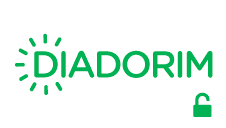When the prompt teaches
emerging literacy practices with AI in language education
DOI:
https://doi.org/10.47677/gluks.v25i02.534Keywords:
Digital Literacies, Artificial Intelligence, Language Education, Generative AI, Critical Applied LinguisticsAbstract
This article investigates emerging literacy practices mediated by generative Artificial Intelligence (AI) in language education, with a particular focus on the pedagogical role of prompts as discursive mediation devices. Grounded in the theoretical framework of Critical Applied Linguistics (Pennycook, 2018; Monte Mor, 2013) and the multiliteracies perspective (Rojo, 2012; Kalantzis & Cope, 2025), the study problematizes the role of language technologies in reshaping teaching and learning practices within the Global South. A qualitative and exploratory approach is adopted, based on the analysis of simulated pedagogical interactions using generative AI tools (such as ChatGPT), observing how participants construct meaning, negotiate discourse, and mobilize diverse linguistic repertoires through textual commands. Preliminary findings indicate the potential of prompts as catalysts for authorship, agency, and creativity in the language learning process, while also revealing epistemological tensions between automated techniques and decolonial pedagogies. It is concluded that understanding prompts as critical literacy practices enables a redefinition of AI use in education, promoting a more equitable, dialogic, and context-sensitive approach to language teaching in sociocultural realities of the Global South.
Downloads
References
ANDRADE, M. S. Pedagogia decolonial e letramentos críticos: contribuições para a formação docente. Cadernos de Linguística e Teoria da Literatura, v. 24, n. 1, p. 139–160, 2016.
BAKHTIN, M. Os gêneros do discurso. Tradução: Paulo Bezerra. São Paulo: Editora 34, 2016.
BROWN, T. et al. Language models are few-shot learners. In: Advances in Neural Information Processing Systems, v. 33, p. 1877–1901, 2020.
COPE, B.; KALANTZIS, M. Generative AI and learning. New York: Routledge, 2024.
FOUCAULT, M. A arqueologia do saber. 7. ed. Rio de Janeiro: Forense Universitária, 2008.
KALANTZIS, M.; COPE, B. Learning by design: the shift to a pedagogy of understanding. London: Cambridge University Press, 2025.
LANKSHEAR, C.; KNOBEL, M. New literacies: everyday practices and social learning. 3. ed. Maidenhead: Open University Press, 2011.
MONTE MOR, W. Pedagogia crítica e multiletramentos: complexidade e (re)invenção do cotidiano escolar. Revista Brasileira de Linguística Aplicada, v. 13, n. 2, p. 505–528, 2013.
OELDORF-HIRSCH, A.; NEUBAUM, G. The perils of trusting AI: information quality and credibility in digital learning. Computers & Education, v. 190, p. 104-616, 2023.
PAIVA, V. L. M. O. Letramento digital e a crítica da colonialidade: caminhos para uma linguística aplicada decolonial. Revista Brasileira de Linguística Aplicada, v. 19, n. 2, p. 297–318, 2019.
PENNYCOOK, A. Posthumanist applied linguistics. London: Routledge, 2018.
ROJO, R. (org.). Escola conectada: os multiletramentos e as TICs. São Paulo: Parábola Editorial, 2012.
SANTOS, B. de S. Para além do pensamento abissal: das linhas globais a uma ecologia de saberes. In: SANTOS, B. de S.; MENESES, M. P. (org.). Epistemologias do Sul. São Paulo: Cortez, 2010. p. 31–83.
SELWYN, N. Education and technology: key issues and debates. 2. ed. London: Bloomsbury Academic, 2014.
Downloads
Published
How to Cite
Issue
Section
License
Copyright (c) 2025 Gláuks - Revista de Letras e Artes

This work is licensed under a Creative Commons Attribution 4.0 International License.














